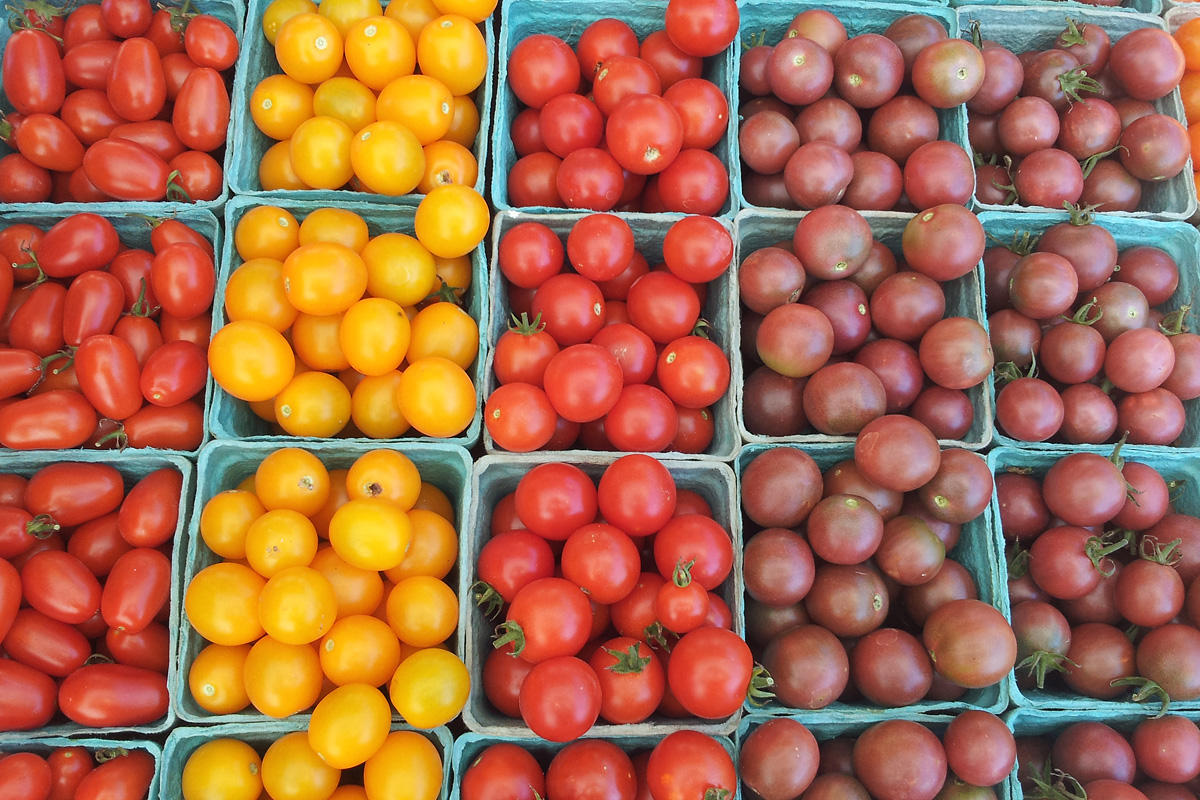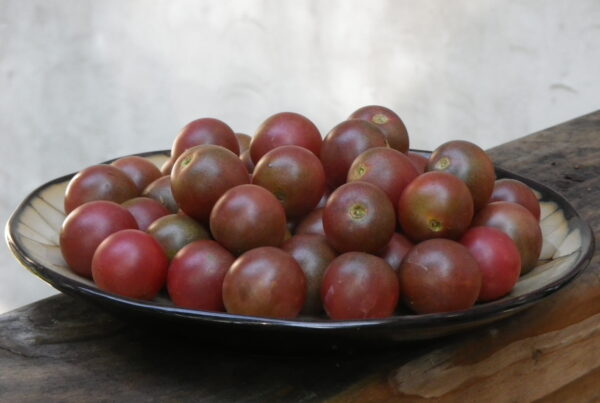By Mark Schonbeck
As the September 30 expiration date for the current Farm Bill approaches, the House and Senate Agriculture Committees continue working on the 2023 Farm Bill. While the window is starting to close for introduction of new “marker bills” (intended to become part of the Farm Bill), it is still a good time to call Members of Congress to ask for their support for key provisions. In June, the National Sustainable Agriculture Coalition (NSAC) held a Farmer Fly-in to bring farmer concerns related to climate change, conservation, local food systems, crop insurance, and more to Agriculture Committee members and USDA decision makers.
Four new marker bills introduced since the last VABF e-newsletter include the Senate version of the organic research act, a new bill to improve conservation program support for smaller scale producers, a proposal to fund manure composting, and a bill to support perennial agriculture. Following is a description of these initiatives, and a summary of marker bills discussed in the June newsletter.
Organic Science and Research Investment Act (Senate)
On July 13, Senator John Fetterman (D-PA) introduced the Organic Science and Research Investment (OSRI) Act, the Senate companion bill to the SOAR Act introduced in the House this past April. Six other Senators joined as original co-sponsors: Cory Booker (D-NJ), Sherrod Brown (D-OH), Bob Casey (D-PA), Kirsten Gillibrand (D-NY), Peter Welch (D-VT), and Ron Wyden (D-OR). Key provisions of the OSRI Act include:
- An Initiative to coordinate and expand organic research across the USDA Agriculture Research Service (ARS), National Institute for Food and Agriculture (NIFA), National Agricultural Statistics Service (NASS), and Economic Research Service (ERS). The Initiative will review USDA-funded organic research on a five-year cycle and make recommendations for additional research including new cultivars and livestock breeds, organic weed, insect, and disease IPM, climate resilience, and ecosystem services.
- Direct the ARS to devote a percentage of its field research acreage to organic that is at least equal to the organic market share (currently about 7%).
- Increase annual mandatory funding for the Organic Research and Extension Initiative (OREI) by $10 million each year, reaching $100 million in 2028 and add traditional ecological knowledge (TEK) and climate mitigation and resilience as program priorities.
- Establish first time Congressional funding authority for the Researching the Transition to Organic Agricultural Production (formerly “Organic Transitions” or ORG) at $10 million per year, increasing to $12 million in 2027-28.
- Increase funding for the Organic Data Initiative (ODI) to $10 million/year.
Small Farms Conservation Act
Senate S. 2180
House bill coming soon
The Small Farms Conservation Act was introduced on June 22 by Senators Michael Bennett (D-CO), Ben Ray Luján (D-N.M.), and Sherrod Brown (D-OH), with eight other Senators as original co-sponsors. Representative Yadira Caraveo (D-CO) will introduce a companion bill in the House in the near future. This bill would improve access to the Environmental Quality Incentives Program (EQIP) for small scale farmers and ranchers, with the following provisions:
- A small farm subprogram within EQIP, overseen by national and state coordinators.
- A streamlined application process for the small farm program and continuous enrollment (no need to wait for annual ranking period).
- A bonus payment for farms under 50 acres that implement soil health practices.
- Training for NRCS personnel in meeting conservation needs of small-scale producers.
This bill could be of special relevance to VABF producer members and other Virginia farmers, many of whom produce a diversity of crops, livestock, or both on a smaller scale. See Senator Bennett’s press release for more information on this initiative.
Converting our Waste Sustainably (COWS) Act (House and Senate)
On June 23, Representatives Jim Costa (D-21st-CA), David Valadao (R-22nd-CA), and Chellie Pingree (D-1st-ME) introduced H.R. 4327, the Converting Our Waste Sustainably (COWS) Act, a bill to direct the Secretary of Agriculture to establish an alternative manure management program that reduces methane emissions (by transitioning away from liquid anaerobic storage) and increases carbon sequestration (through manure composting). Senators Senators Alex Padilla (D-CA), Sherrod Brown (D-OH) and Martin Heinrich (D-NM) have introduced a companion bill in the Senate
Based on the successful and popular Alternative Manure Management Practices (AMMP) program in California (in which 147 dairies across the state have enrolled thus far), the COWS Act would support livestock operations to convert away from liquid manure handling systems, which emit lots of methane and threaten water quality, to more ecologically sound alternatives. These include windrow, in-vessel, or aerated static pile composting; composting bedded pack; solar drying, and other solid manure management systems, as well as transition to pasture-based management and rotational grazing that distributes manure more evenly across the land, thus reducing greenhouse gas emissions and water pollution. Check out this COWS Act summary for and bill text for more.
Senators plan to introduce a companion bill this coming week. Watch the NSAC blog (https://sustainableagriculture.net/blog/) for more information after the introduction of the Senate bill.
Working Trees, Grasslands, and Buffers for Conservation Act (Senate)
This bill, developed in consultation with the nonprofit Carbon 180 and introduced by Senator Sherrod Brown and at least one Republican Senator (TBD), would support agroforestry and perennial-based production and conservation systems. Specific provisions include:
- Establish an Agroforestry Initiative within the Continuous signup Conservation Reserve Program (CCRP).
- Allow non-emergency grazing or harvest of non-timber forest products from land in the Agroforestry Initiative, provided that conservation benefits are maintained.
- Grazing must be rotational and must take place outside of the primary nesting season.
- Dedicate at least 3 million acres to Conservation Reserve Program (CRP) Grasslands and establish a Grasslands30 initiative for long-term grasslands conservation.
- Empower Tribal governments to administer CRP contracts.
- Make transition of expiring CRP acres to agroforestry and other perennial systems eligible for the CRP Transitions Incentives Program
The overall goal and vision of this initiative is to expand implementation of agroforestry and other perennial based systems that integrate production and conservation, a win-win that opens new enterprise opportunities for producers while enhancing conservation outcomes. The perennial production-conservation systems will also help mitigate climate change through carbon sequestration and enhance resilience of agricultural landscapes. Click here for more information.
Seeds and Breeds for the Future Act (Senate)
Introduced on June 15 by Senators Tammy Baldwin (D-WI), Martin Heinrich (D-NM), Tina Smith (D-MN), John Fetterman (D-PA), and Ron Wyden (D-OR), the Seeds and Breeds for the Future Act would commit $75 million per year to USDA research and development of new public crop cultivars and livestock breeds, with emphasis on regionally adapted, climate resilient, and culturally appropriate cultivars and breeds.
Strengthening Organic Agriculture Research (SOAR) (House of Representatives)
This is the House version of the organic research bill, introduced in April by Representatives Dan Newhouse (R-WA), Jimmy Panetta (D-CA), and Chellie Pingree (D-ME). The Strengthening Organic Agriculture Research (SOAR) Act would increase funding for USDA organic agriculture research, including the Organic Research and Extension Initiative (OREI), Organic Transitions Program (ORG), and Organic Data Initiative (ODI). See the SOAR Act one-pager written by Organic Farming Research Foundation (OFRF) for more information.
Agrivoltaics Research and Demonstration Act of 2023 (Senate S. 1778)
The bipartisan Agrivoltaics Research and Demonstration Act, introduced by Senators Martin Heinrich (D-NM) and Mike Braun (R-IN) would support collaborative efforts by USDA and the Department of Energy (DoE) to research, develop, demonstrate, and support widespread adoption of a new approach to integrating solar photovoltaic energy production with sustainable farming. The bill would authorize $15 million per year to research and develop regionally optimized solar panel design and deployment for different cropping and grazing systems, and to establish of a network of demonstration sites linked to the USDA Regional Climate Hubs.
Local Farms and Food Act
Senate S 1205 and House of Representatives HR 2723
The bipartisan Local Farms and Food Act, introduced in April by Senator Sherrod Brown (D-OH) and in the House by Representatives Chellie Pingree (D-ME) and Dan Newhouse (R-WA) would strengthen the Local Agriculture Markets Program (LAMP), the Gus Schumacher Nutrition Incentives Program (GusNIP), and the Senior Farmers Market Nutrition Program by increasing their funding, reducing matching fund requirements, and otherwise improving program access for historically underserved communities
Relief for Farmers Hit with PFAS Act
House of Representatives HR 1517 and Senate S 747
This bill will help farmers meet the looming threat of soil and water contamination with perfluoro alkyl substances (PFAS) also known as “forever chemicals.” Introduced by the entire Congressional delegation from Maine (hence it is a bipartisan and bicameral initiative) the Relief for Farmers Hit with PFAS Act would fund research into mitigation and provide relief for producers whose operations and markets have been directly impacted by PFAS.
Agriculture Resilience Act (ARA)
This is the “flagship” climate-in-agriculture bill, upon which some of the above marker bills are based. Reintroduced into the current Congress on March 28, 2023, by Representative Chellie Pingree (D-ME) and Senator Martin Heinrich (D-NM) as H.R. 1840 and S. 1016, the ARA provides a roadmap to a climate neutral and climate resilient US agricultural system.
Here in Virginia, Reps. Donald Beyer (D-8th), Gerald Connolly (D-11th) and Rep. Abigail Spanberger (D-7th) are co-sponsors for the ARA – if you are in their district, call and thank them! Our Senators have yet to jump on board, but it is still worth giving them a call to let them know how important the provisions of this bill are to your operation.
How to Take Action on the Farm Bill:
Check out the above list and see which one(s) speak to you most, then contact Senators Mark Warner (call 202-224-2023, or email Jahnavi Patel, Legislative Correspondent at Jahnavi_patel@kaine.senate.gov) and Tim Kaine (call 202-224-4024 or email Taylor Durbin, Legislative Correspondent at Taylor_Durbin@warner.senate.gov), and your Representative (check their website for their DC phone number). Introduce yourself, state how climate or other challenges affect your farming operation and how the bill(s) you are advocating can help you better meet the challenges and contribute to solutions. Then ask them to co-sponsor the bill(s).






